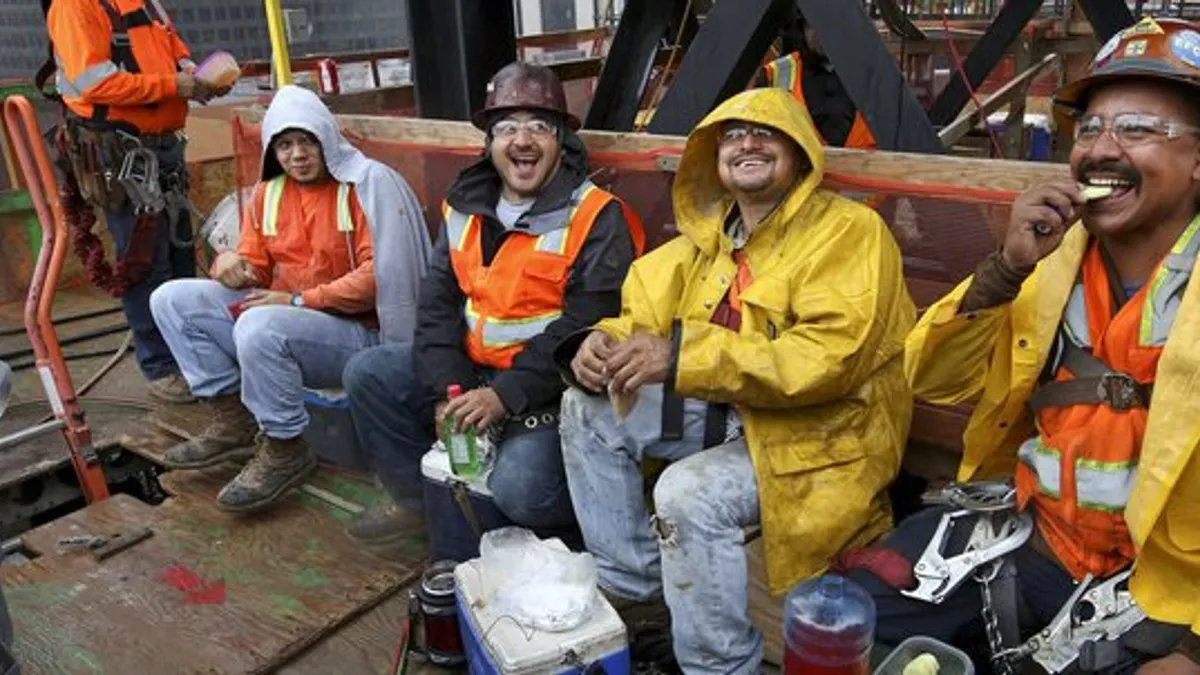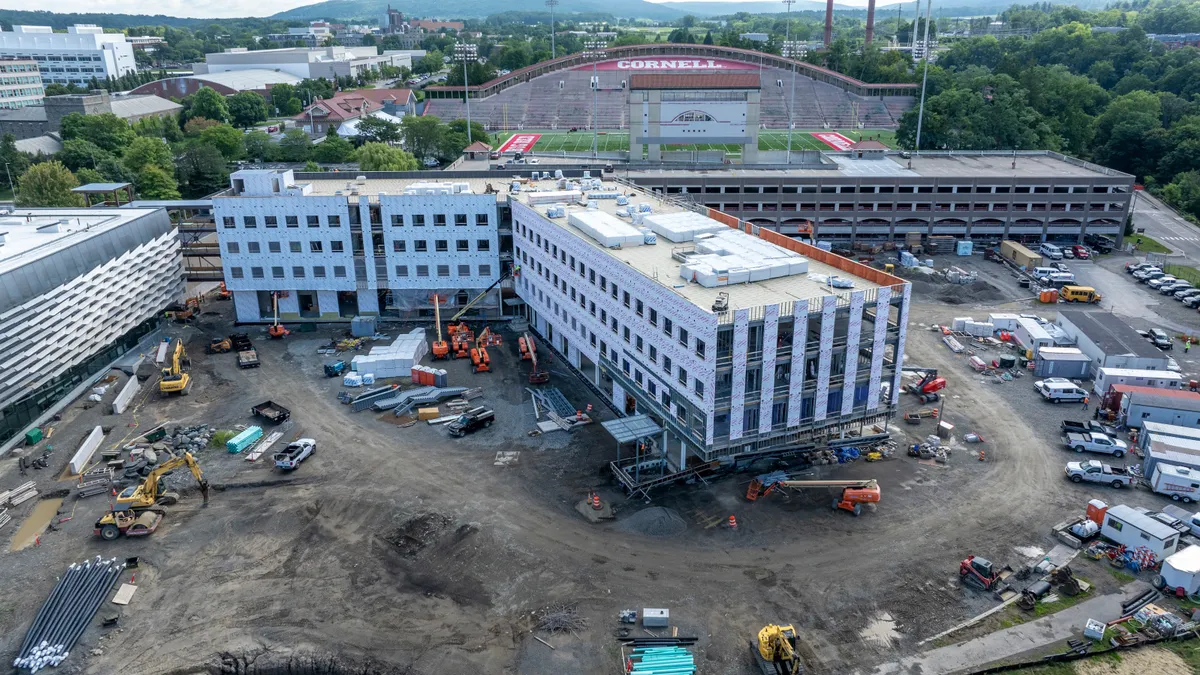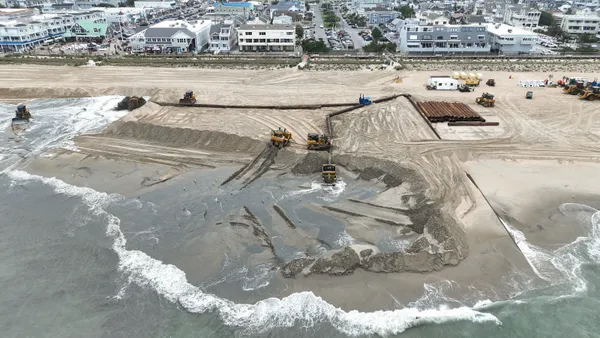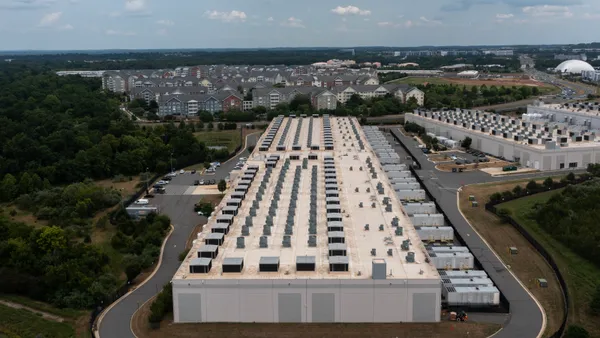Dive Brief:
- Construction industry employment increased by 30,000 last month, the Bureau of Labor Statistics reported.
- Specialty contractors added the bulk of new workers with 23,800. Construction added 210,000 jobs in 2017, a more than 35% jump from 2016's increase of 155,000. Construction workers put in an average of 39.3 hours a week in December 2017, up from 38.9 hours in December 2016, and earned an average hourly wage of $29.24, up from $28.40 year over year.
- Month-over-month nonresidential construction employment fell by 1,300 jobs with heavy and civil engineering also netting a 700-position loss. Residential construction employment, including that of specialty contractors, grew by 18,200 jobs.
Dive Insight:
Earlier this month, the Associated Builders and Contractors (ABC) reported that the November construction unemployment rate dipped 0.7% to 5% from November 2016 — the lowest November unemployment rate on record. The ABC chalked up much of November's increase in employment to favorable weather and the rebuilding efforts after the string of natural disasters in the late summer and fall seasons.
Despite what seems to be a robust construction industry today, contractors have expressed concern about not being able to find enough qualified workers going into 2018. The Associated General Contractors of America (AGC), in an annual survey conducted along with Sage Construction and Real Estate, recently reported that 75% of contractors expect to add staff this year, encouraged by recent tax reform and regulatory rollbacks. But 82% of respondents also indicated that they expect difficulties in finding enough skilled employees. To help with productivity, 50% of contractors said they would invest in technology.
One area of concern among those contractors was the level of infrastructure investment by the federal government. The organization urged Congress and the Trump administration to make good on the promise of a massive infrastructure program and to reauthorize the Perkins Act, which funds career and technical education.
Last year via executive order, President Donald Trump increased apprenticeship funding to $200 million and gave the private sector more leeway in designing apprenticeship programs. His administration's unofficial goal is to create 5 million apprenticeships in the next five years.














